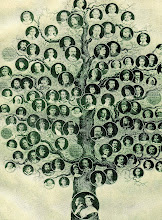If you’ve ever wondered why so many professional genealogists seem reluctant to do research for African Americans who are seeking to trace their family history, here are some of the reasons why:
Lincoln’s Emancipation Proclamation was issued on January 1, 1863, as the nation approached its third year of bloody civil war. The proclamation declared "that all persons held as slaves" within the rebellious states "are, and henceforward shall be free." While the Proclamation only applied to slaves held in Confederate states not yet under Union control, and it was only the first step on the long road to slavery’s eventual destruction, it is a clear indication that that any African American whose ancestors lived in the United States before the Civil War were almost certainly slaves, and written records for slaves, if they existed at all, were rare.
So how can you go about researching these ancestors? One place to begin is with those who were free. Just as you would with an ancestor of any race or ethnic group, you trace your family history back as far as you can. It is common to run into problems just before the Civil Rights movement of the 1960’s. Before that time, African American civil rights were heavily restricted. Many had received little or no formal education, were unable to read or write, and had a much more difficult time receiving documentation of their records. The further you go backward prior to the Civil Rights movement, the fewer records were kept and the fewer African Americans were able to receive an education or to read or write.
When you find yourself unable to discover written records, you must start to look at oral family history. These are the family stories, legends and even myths. Naturally, these are incomplete, and often exaggerated or partially forgotten stories that have been handed down, but they are still valuable as points to refer to in your search for facts. The rule of thumb is that if you can find the same story, with the same details, in three separate and unrelated places, you can tentatively regard the stories as true. However, it is still important that you continue to be diligent in looking for discrepancies or errors in the stories as you continue your research and uncover other information.
On the other hand, once you have managed to carry your research farther back in time, the records of slave owners and slave-ship captains can become a factor. For example, proceeding backwards, you can find bills of sale which show the dates your ancestors were purchased as slaves, many times following the trail in reverse from owner to owner until you find the earliest bill of sale from a particular ship, then follow the ship’s logs and journals backward to the particular area in Africa where the ship was docked to know where your ancestors came from.
Researching African American ancestors is an extremely challenging task, and it requires a great deal of patience, persistence, intuition, and luck, along with an even greater measure of determination. However, the results can be extremely rewarding.
Sunday, February 1, 2009
Subscribe to:
Post Comments (Atom)

No comments:
Post a Comment